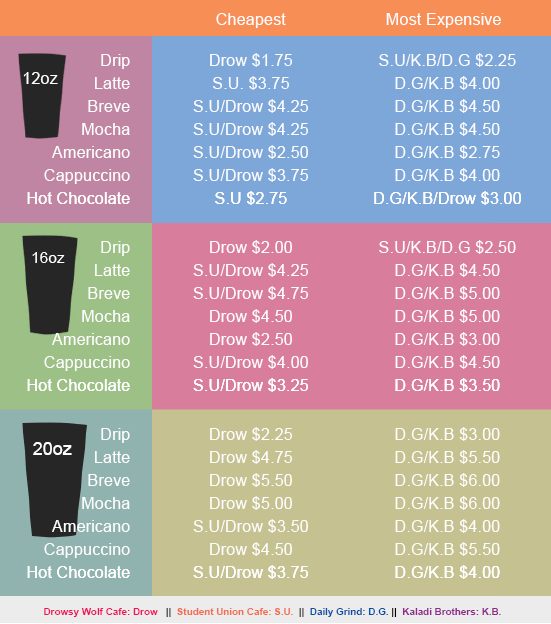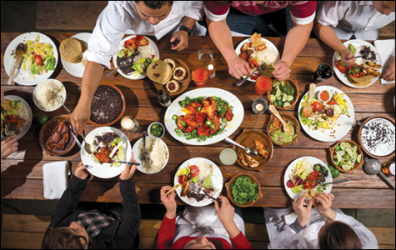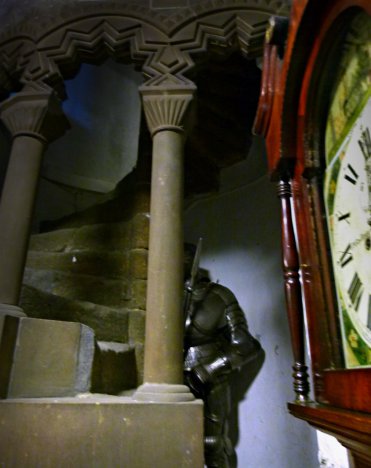 Graphic by Jian Bautista, via The Northern Light
Graphic by Jian Bautista, via The Northern Light
On average, the cheapest coffee on campus can be found at the UAA Bookstore at The Drowsy Wolf. The cheapest coffee after that, for most items, can be found in the Student Union at the Union Station, and coming in next are operations run by Seawolf Dining. But depending on how you pay for your coffee, it may be more affordable to purchase coffee at locations that accept meal blocks or dining dollars.
NANA Management Services runs Seawolf Dining, and NMS Area Manager, Scott Evers said Seawolf Dining accepts three different revenue streams. The first, is what Evers called meal equivalencies, or meal blocks, which can pay for food items in $5 swipes. The second revenue stream is called dining dollars, which come with a meal plan and the third are Wolfbucks that are added to a Wolfcard and function like a UAA specific debit card. The Drowsy Wolf does not accept meal equivalencies or dining dollars, the Union Station can only accept dining dollars, and Seawolf Dining locations accept both meal equivalencies and dining dollars.
Liam Lindsay, student manager of the Union Station, and Annie Route, Student Life and Leadership director, said that up until the middle of fall semester, the Union Station was still able to accept meal equivalencies while retaining some of the cheaper prices around campus.
“We used to be able to do [meal blocks], up until about halfway through the semester last year, until they disappeared without warning,” Lindsay said.
When asked to explain more, Route in a joint interview with Lindsay, said their ability to accept meal blocks was ‘taken away.’
“We would love to accept meal blocks, but those were taken away by Seawolf Dining. You can ask Scott [Evers], because we weren’t explained anything either. I think it was the beginning of fall [that meal blocks were taken away],” Route said.
The Seawolf Dining website states that only Seawolf Dining operations and subcontractors are able to accept both meal blocks and dining dollars. Evers said the Union Station is in a unique position because the coffee location used to be a Seawolf Dining run operation until it was changed to be a university run, student-run coffee shop.
“There was a pilot program,” Evers said as an answer to why Seawolf Dining no longer runs Union Station. “We were running it for quite a while itself, up until 2011-2012, and the University had a pilot program through one of their organizations and they had some money and they wanted to do some investments training and on the job training for students at that time. At that time we went into this mutual agreement with them, and specifically said what they could and couldn’t use.”
Evers said that there was an agreement in 2012 dictating what meal currencies would be accepted at the Union Station; Route said the meal blocks were taken away just last semester.
“It was something that just happened and we were not really informed long before that, that those were going to stop,” Route said about the meal blocks being removed. “[The Union Station] in 2013, was negotiated to Student Affairs so that we could provide a program where students have the opportunity, kind of like a business lab, to run the shop, schedule, order, get that whole experience of running it and we thought we could be a very student oriented, campus-oriented coffee shop right here in the middle of the campus. We said we would take it on, we’d pay for it, we’d pay for our students, so they released the coffee shop from the contract with NANA to us, with the idea that we would revisit it every few years, kind of see how it’s going.”
Joey Sweet, political science major, remembers when the Union Station stopped being able to accept meal blocks. Sweet, who uses a Seawolf Dining plan, relies on his meal blocks to buy coffee. In the middle of fall semester, he stopped being able to afford coffee at the Union Station, because his meal blocks could no longer be accepted.
“Well as the term went on, I basically had to stop using Union Station, because if they didn’t take meal blocks, and as I slowly but steadily burned through those $400 on the regular meal plan account, I had to switch to using the meal swipes, which are $5…it was not a decision at all,” Sweet said. “I had to stop. I continued to go to Kaladi’s because they continued to accept them.”
Kaladi Brothers Coffee on campus is a part of Seawolf Dining, but their coffee costs anywhere from 25 cents to $1 more than The Drowsy Wolf coffee, and in some cases even a 25 cent to 50 cent markup from the Union Station.
Last semester, Sweet was looking for a Senator project as a part of USUAA, and he started looking into the way all of the coffee shops priced their products differently after a friend who worked at the Union Station told him about their meal blocks being shut off.
“What my [friend] told me was that [NANA Management Services], with no warning, no emails ahead of time one day just stopped having Union Station accept meal blocks as a form of payment,” Sweet said. “He says it happened, I [personally] don’t know, this is hearsay, he said that it happened in the middle of the shift in between customers. Like the customer in front happened to pay with a meal block and the next one came up, and he went to press the same button and it was just gone…”
Route can not definitively explain why the Union Station was no longer able to accept the Seawolf Dining dollars because she said she never received any communication on the subject, but she thinks it has to do with shrinking university budgets.
“[Students] can use meal blocks at [the] Kaladi Brothers shop in the library, that’s run by NANA. And they can also use it at Subway, because Subway is co-contractor or subcontractor with NANA to be here on campus. The Union Station coffee shop is not. So I get it, I understand, when you’re looking at the bottom line it’s starting to shrink, you have to see where your funds are going and how you can maintain that level of earnings,” Route said. “And for them it was money out the door, to us. Which was unfortunate that students lost that opportunity. We’re pleased that a lot of them have stuck with us, and there are still guests and customers here.”
In the past, Evers said he didn’t know that the Union Station wanted to have dining dollars, so he ‘turned it off,’ but later returned the service. He said he was not aware that the Union Station was ever able to accept meal blocks.
“It’s very confusing. Once I found out that we were offering something and then [I] turned it off and it was probably not the best customer service, so I turned them back on. We are going to need to figure something out for the fall semester of 2018,” Evers said of the dining dollars. “It’s always better to do it at the beginning of the semester.”
Route remembers when the dining dollars were taken away, but the Union Station is able to accept those again, just not the meal blocks. When asked how meal blocks and dining dollars were different and why Union Station was allowed to have one but not the other, Evers responded by saying it was “correct” that the percentages of reimbursement were different. He did not elaborate more. Instead, he deferred to Director of University Housing, Dining and Conference Services director David Weaver.
“The Student Union cafe “Union Station” was operated by my department up to spring 2013,” Weaver said. “Student Union staff requested it become independent to create a “Learning Laboratory” for students to run and manage, for them to learn about business planning and student engagement on campus. We agreed and gave the operation to the Student Union starting summer 2013. They use a different financial system and it is very difficult to have our systems mesh. It is possible to link them again in the future, but I believe it will not be a quick process.”
In this academic year, the Union Station is no longer accepting meal blocks, but there is talk from The Drowsy Wolf’s manager, Penny Kimball, that the shop is considering asking Seawolf Dining for the ability to accept dining dollars.
Advertisements Share this:




